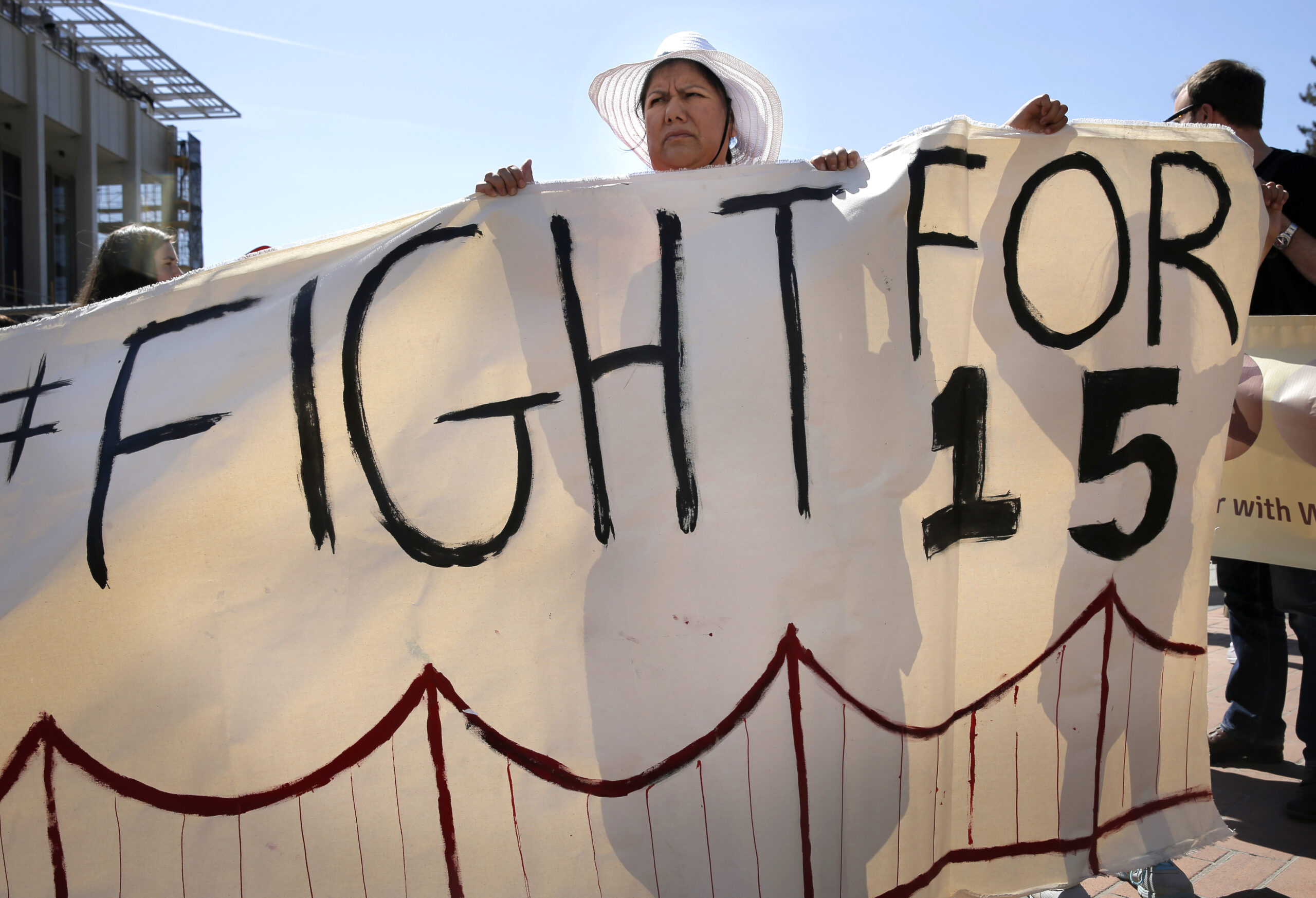San Francisco’s minimum wage will increase by more than a dollar in July 2023. The jump, the largest since 2015, is due to the inflation the city experienced in the past year.
Beginning on July 1, 2023, San Francisco employers will be required to pay employees a minimum of $18.07 an hour. That’s more than a 6% rise from the $16.99 baseline wage in the city today.
San Francisco’s minimum wage is tied to inflation rates and increases every July based on the Consumer Price Index for workers in the San Francisco-Oakland-San Jose metro areas. Proposition J, an ordinance city voters passed in 2014, mandates the annual cost of living adjustment.
“I don’t think [the new wage is] going to have a particularly strong effect,” Ted Egan, the city’s chief economist, wrote in an email. “In inflation-adjusted dollars it isn’t an increase at all.”
The market rate workers can demand in low-wage industries has grown a lot faster than inflation since the recovery from the pandemic started, according to Egan.
“I think these days, a labor shortage is a bigger issue for most businesses than the minimum wage increase,” he wrote.
Laurie Thomas, executive director of the Golden Gate Restaurant Association, said she thought last year’s high inflation would send the minimum wage even higher than $18.07. But regardless, she anticipates that the new rate will have ripple effects across city businesses.
“Is it going to put pressure on all of the businesses? Yes.” Thomas said. “What’s going to happen? We’re going to have to raise prices.”
On the other hand, she recognizes that many low-wage employees have been struggling under the burdens of inflation themselves.
“I’m sure the workers will be thrilled. They’ve been seeing their costs going up,” Thomas said.
Karl Kramer, co-director of the San Francisco Living Wage campaign, celebrated the announcement. The pay raise will help support the many low-wage workers who have been forced to leave SF for cheaper parts of the Bay, but still face “super commutes” into their city jobs, he said.
When Prop. J first passed in 2014, the base pay for workers in the city was $10.74. The measure outlined a series of wage increases to bring the minimum up to $15 before setting the standard for an automatic annual increase based on inflation.
Dramatic inflation across the U.S. grabbed headlines in 2022. While San Francisco didn’t get hit as hard as much of the nation, the price of goods still soared, putting pressure on local businesses and leading to sticker shock, as the cost of essentials like gasoline and bread increased.
While there is not a comprehensive national database of minimum wages, data on minimum wages in 79 of the country’s largest cities compiled by the company SmartAsset suggests that San Francisco’s new minimum wage will place it in the top-tier of hourly pay in the country, behind just a select few other locations. In Seattle, for example, employers must pay at least $18.69 per hour and the hourly minimum is $18.15 in Mountain View.
